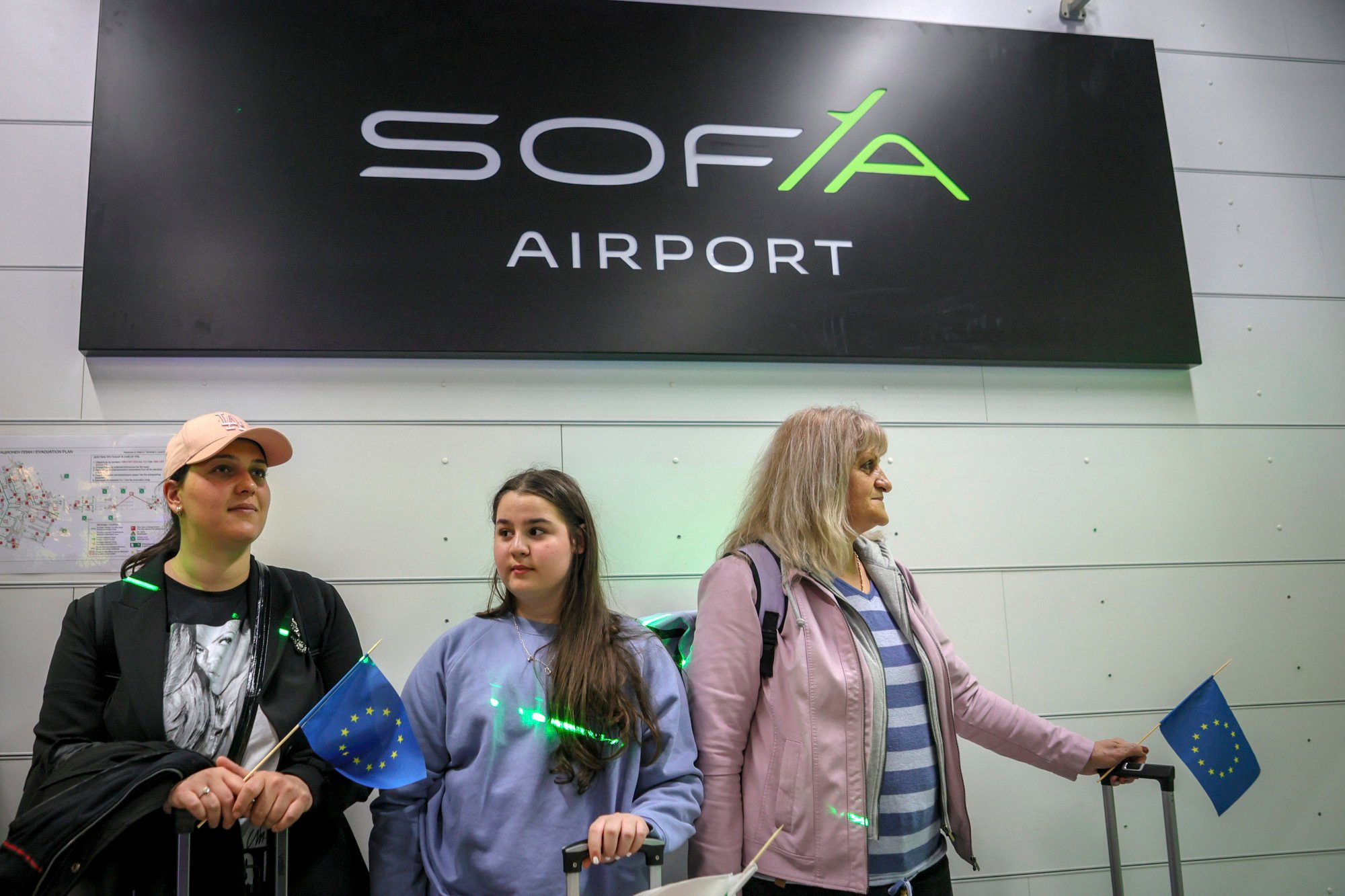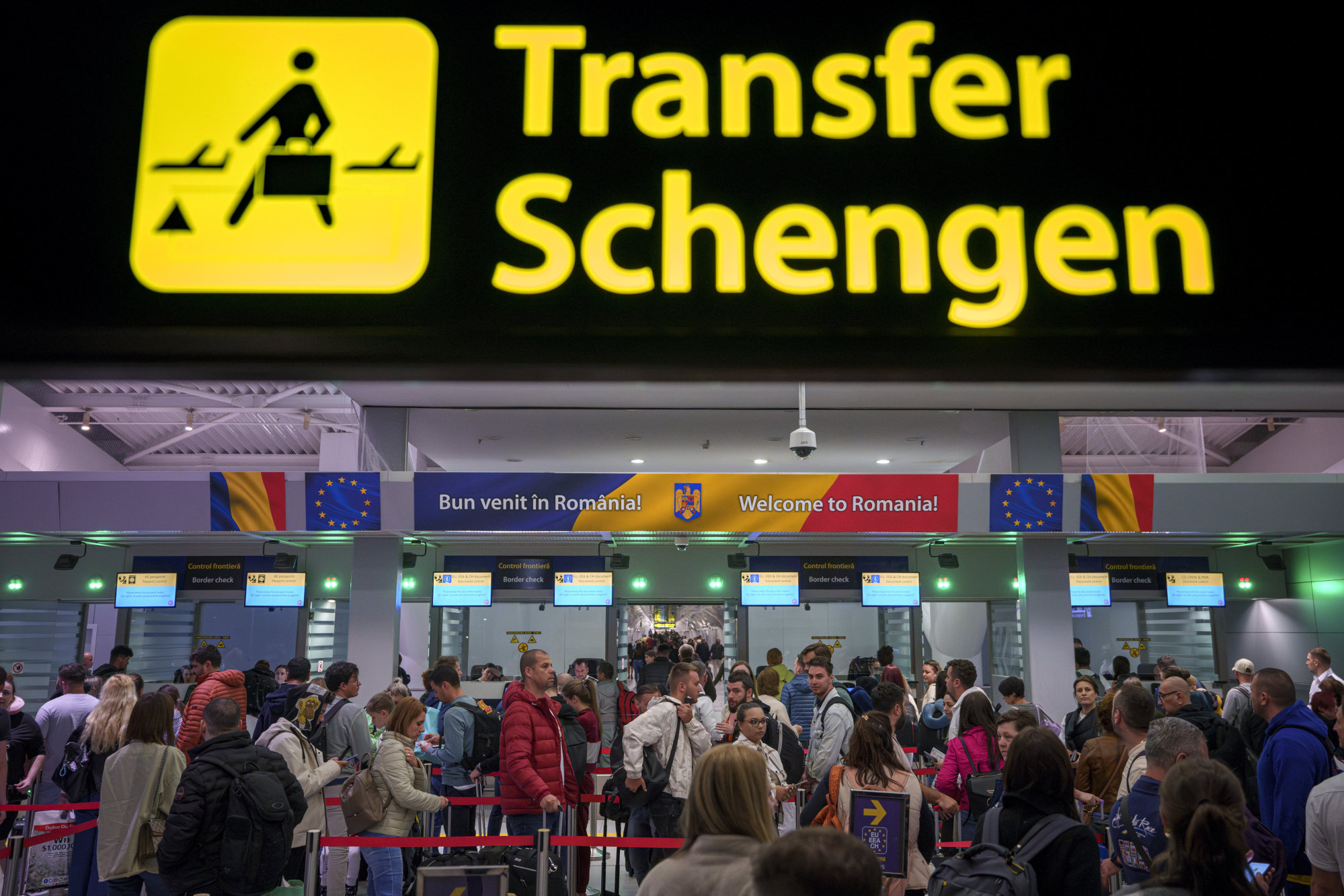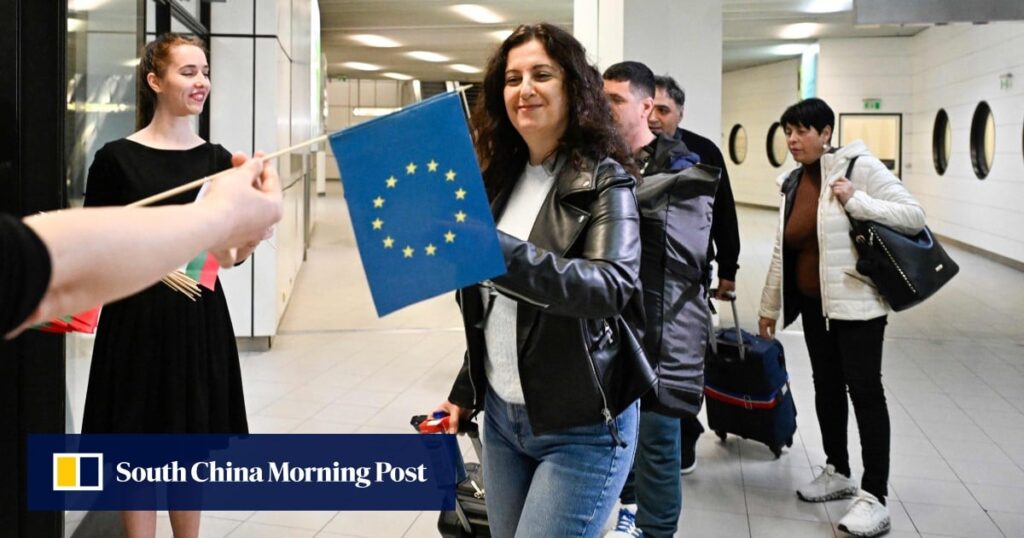Romania and Bulgaria partially joined the European ID-free travel area on Sunday, taking another step in their integration into the European Union.
European Commission President Ursula von der Leyen hailed the changes as a “huge success for both countries” and a “historic moment” for the world's largest free travel zone.

Austria vetoed Romania and Bulgaria's accession to the Schengen Area at the end of 2022, but allowed Croatia's full membership. Bulgaria and Romania joined the EU in 2007, and Croatia in 2013.
Siegfried Muresan, a Romanian member of the European Parliament, told The Associated Press that this is an “important first step” that will benefit millions of tourists a year.
“Bulgaria and Romania have met all the criteria for joining the Schengen Area for many years. We have the right to join even our land borders,” he said. “This will provide additional discussion to the last remaining EU member state,” he added. veto full accession. ”
Romanian Prime Minister Marcel Ciolak said this was a “well-deserved result” for Romania and would benefit the people by making travel easier and boost the economy.
Chinese railway company CRRC withdraws Bulgarian bid following EU investigation
Chinese railway company CRRC withdraws Bulgarian bid following EU investigation
“There is a clear and firm plan by the government for full access to the Schengen Area by the end of the year,” he said.
For more than a decade, the European Commission, the EU's executive branch, has maintained that both Romania and Bulgaria meet the technical criteria for full membership and that full membership requires unanimous support from partner countries. I've done it. The two countries have agreed to conduct unannounced security checks at airports and maritime borders to combat illegal immigration and cross-border crime.
“Bulgaria's full accession to the Schengen Agreement will take place by the end of 2024,” Bulgarian Interior Minister Karin Stoyanov told reporters on Sunday. “We have shown, and will continue to show, illegal immigrants that they should not travel through Bulgaria to Europe.”

The lifting of border controls is expected to ease the operation of Bulgaria's four international airports, which were visited by nearly 11 million passengers in 2023, according to official data.
Sofia's airport is the largest hub for Schengen area flights, accounting for 70% of all flights, airport officials said.
While deregulation is expected to have a positive impact on the tourism sector, MEPs have warned of long queues at the EU's land borders and its impact on trade and health and safety in the EU's single market. have expressed concerns about the impact. of the driver.
At the Romanian-Bulgarian border, truck drivers are frequently caught in queues stretching for several kilometers. Bulgaria's International Airline Federation estimates that delays cost the airline industry tens of millions of euros each year.


